Breast cancer study receives $1.5 million grant
Updated: 2014-11-25 10:34
By AMY HE in New York(China Daily USA)
|
||||||||
A team led by a Chinese professor at the University of Houston has received a $1.5 million grant from the National Institutes of Health (NIH) to study the effects of a social support group on Chinese-American breast cancer survivors.
The study, Joy Luck Academy: A Culturally Sensitive Social Support Intervention, will follow 210 Chinese-American women recently diagnosed with breast cancer as they participate in a support group called the Joy Luck Academy (JLA). The study will follow the women for five years.
Dr Qian Lu, an associate professor of psychology at the university, will be leading the study, which takes its name from Amy Tan's 1989 book The Joy Luck Club, about four Chinese immigrant women who live in San Francisco and gather to talk about their experiences.
Lu told China Daily that she and her team received the grant from the NIH's National Cancer Institute in September, and that it is the first grant awarded to a social support intervention study for Asian-American women cancer survivors.
"The goal for the study and one of the reasons why the NIH funded the study is not only to figure out the benefits for women, but to figure out the difference ways we can evolve the field," she said, noting that study of Asian-American breast cancer survivors is rare.
Breast cancer is the leading cancer affecting Asian-American females, and the incidence of it among subgroups of Asian women is rising. But "little attention has been focused on the informational and psychological needs of Asian American breast cancer survivors", wrote Lu and other authors in their paper on the JLA study. The paper was published in the November 2014 issue of Oncology Nursing Forum.
"We're doing something that nobody was doing before, so we're able to learn new ways of doing things and understand the unique needs of the Asian-American population and how we can help them," Lu told China Daily. "In a sense, we have to explore what the best ways are. Nobody has done anything like that with Asian Americans."
Lu said that as a trained physician, she could help save lives, but "there were a lot of conditions that were chronic and I couldn't get rid of the illness", she said. "The key was to help patients have a better quality of life as a whole person, not just as a patient."
Lu said her goal was to assess whether social support improves quality of life and reduces depressive symptoms, fatigue and stress among Chinese women who have breast cancer.
"Asian-American populations with cancer, many of whom are immigrants, have an increased need for psychosocial interventions because of existing cultural and linguistic barriers," wrote the authors. "Compared to Caucasians, Asian Americans are less likely to explicitly seek out social support. They often perceive that sharing their own problems may burden others and disrupt the harmony of their relationships. Shame and stigma associated with cancer also prevent Asian cancer survivors from seeking social support."
Lu said that there has been no research done in this area, so it's hard to know what type of intervention would be needed for Asian-American breast cancer survivors.
"This is really the first one," she said.
amyhe@chinadailyusa.com
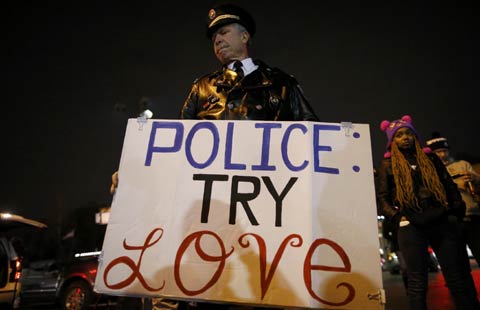
 Ferguson grand jury has reached decision
Ferguson grand jury has reached decision
 Top 7 affects of rate cut on people's life
Top 7 affects of rate cut on people's life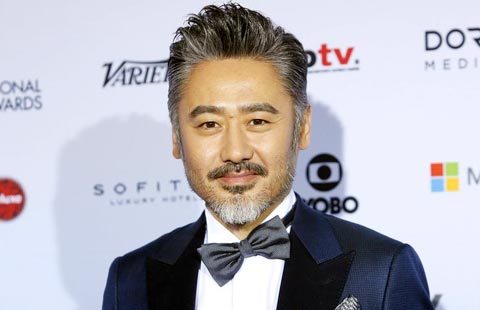
 42nd International Emmy Awards held in New York
42nd International Emmy Awards held in New York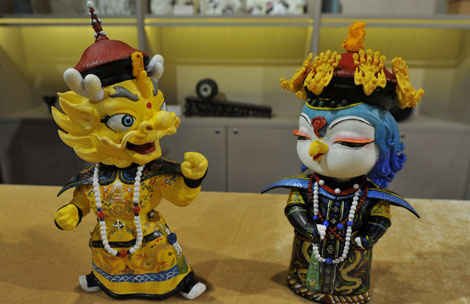
 Forbidden City more welcoming
Forbidden City more welcoming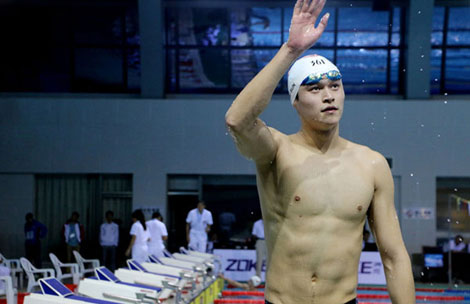
 Olympic champ Sun Yang failed doping test in May
Olympic champ Sun Yang failed doping test in May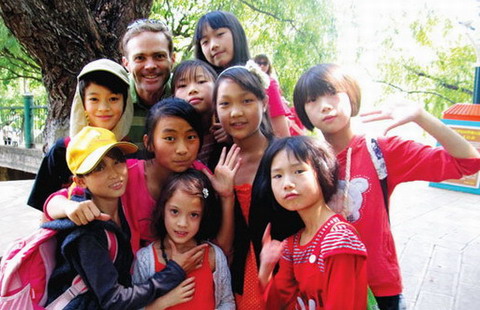
 Top 10 kinds of foreigners in China
Top 10 kinds of foreigners in China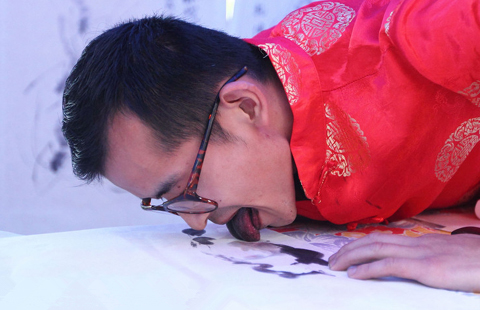
 Trending: Hangzhou man licks out painting
Trending: Hangzhou man licks out painting
 Rio 2016 mascots combine Brazilian fauna, flora
Rio 2016 mascots combine Brazilian fauna, flora
Most Viewed
Editor's Picks

|
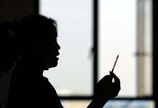
|

|

|

|

|
Today's Top News
Hagel move won't affect China-US ties: experts
China's nuclear power bid saluted
No indictment of officer in fatal Missouri shooting
Chinese real estate stocks continue rise on rate cut
Women entrepreneurs get financial tips
Wealthy want kids to study abroad
Breast cancer study receives $1.5 million grant
SAT scores canceled for some test-takers in China, Korea
US Weekly

|

|







